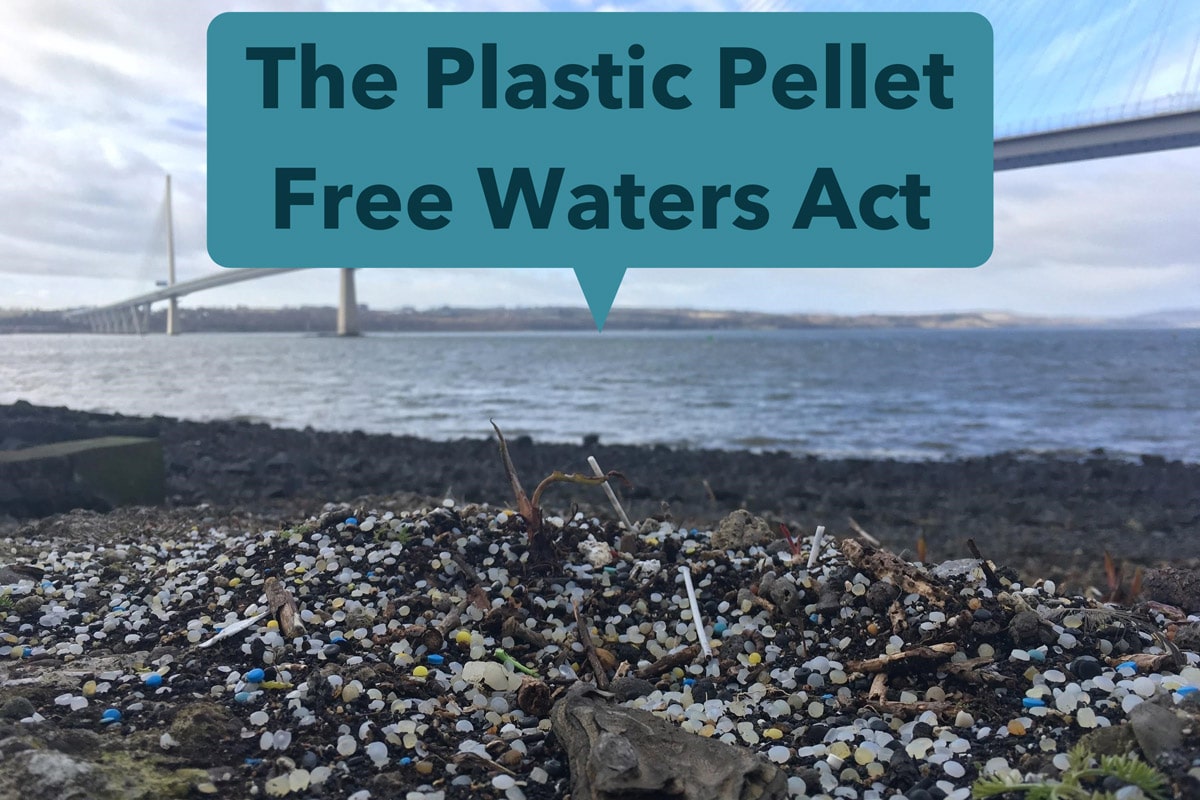CONTACT:
Sen. Udall’s Office: Ned Adriance
202.228.6870 | news@tomudall.senate.gov
Break Free From Plastic Movement: Brett Nadrich
929.269.4480 | brett@breakfreefromplastic.org
WASHINGTON – Today, Senator Tom Udall (D-N.M.) introduced the Plastic Pellet Free Waters Act to prohibit the discharge and pollution of pre-production plastic pellets. Pre-production plastic pellets, tiny granules of plastic less than 5 millimeters in size, are the building blocks of virtually all plastic products. Sometimes called “nurdles,” they are produced by major petrochemical companies from fossil fuels and then shipped to thousands of plastic processing plants that melt, mold and turn them into plastic products, such as plastic bags, bottles, utensils, and more.
Udall and U.S. Representative Alan Lowenthal (D-Calif.) are the authors of the Break Free from Plastic Pollution Act, comprehensive legislation to require big corporations to take responsibility for the plastic waste they produce.
A 2016 report by Eunomia, a global consulting firm based in England, estimated that 230,000 tons of pellets pollute the marine environment each year. About 22,000 pellets are found in a single pound, meaning trillions of pellets are scattered into the environment every year. Like other plastic products, pellets take decades to break down and are often mistaken for fish eggs or other food by sea life and birds and can lead to malnourishment and death.
“The plastic pollution crisis rears its ugly head at every step of the plastic supply chain, starting with small plastic manufacturing pellets infiltrating our waterways, parks and oceans,” said Udall, author of the Break Free From Plastic Pollution Act. “Trillions of plastic pellets leak into our environment from lax plastic producers and shippers, and the problem is only getting worse as big oil corporations ramp up their investment in plastic as their path to future profit. It’s time to end the avalanche of plastic pellets damaging wildlife and the livelihoods of entire American communities that depend on healthy rivers, streams and beaches. We can put simple solutions into action today to prevent plastic pellets from continuing to pollute and damage our health—we have no more time to waste.”
The risks of discharging these plastic pellets are enormous and pollution attributed to them has been documented for several decades with little to no enforcement against these spills. In 2019, Formosa Plastic agreed to spend $50 million on local environmental clean-up projects in Texas to address decades of spills – the largest settlement ever in a citizen clean-water-suit. Formosa also agreed to be held to a zero-discharge standard for plastic pellets.
In South Carolina, two citizens groups filed a pellet case in March against Frontier Logistics, a major shipper of resin pellets, for a major spill in Charleston Harbor in 2019 along with smaller spills. Just last month, a cargo ship on the Mississippi River in New Orleans was involved in a major pellet spill, further complicated by confusion over which federal or state agency is responsible for responding. Far more often, however pellets leak from negligent or lax control at industrial and transportation sites due to a failure of federal or state oversight officials to enforce pellet practices and loose industry self-policing. Citizen lawsuits have been necessary because federal and state authorities have failed to act.
A coalition of 280 environmental, public health and community groups has petitioned the Environmental Protection Agency (EPA) to monitor and prevent pellet pollution, including implementing a zero-discharge standard for pellets.
The Plastic Pellet Free Waters Act requires the EPA to finalize a rule within 60 days to:
- Prohibit the discharge of plastic pellets or other pre-production plastic materials from facilities and sources that make, use, package, or transport those materials; and;
- Update all existing permits and standards of performance to reflect those prohibitions.
The full text of this legislation can be found here. Learn more about the Break Free From Plastic Pollution Act here.
“We keep seeing more and more evidence of plastic particles finding their way into our rivers, lakes and oceans, posing risks to sea life and, potentially, to our health,” said Jon Devine, director of federal water policy at the Natural Resources Defense Council (NRDC). “This measure would be a meaningful step forward to reduce that harmful pollution. It’s long overdue and if the industry wants to be a constructive partner it should join with us in supporting it.”
“Plastic pellets are an uncontrolled scourge that fouls waterways and harms wildlife. This important legislation holds EPA to account to stem the tide of this pervasive and preventable pollutant,” said Julie Teel Simmonds, a senior attorney with the Center for Biological Diversity. “Trillions of plastic pellets are released into our oceans every year and plastic is expected to outweigh all the fish in the sea by 2050. We need to hold polluters accountable for the irreparable damage they’re doing to our oceans.”
“Right now, the only thing stopping plastics manufacturers from discharging hundreds of thousands of metric tons of plastic pellets into our waterways are their voluntary commitments, and that just isn’t good enough,” said Doug Cress, vice president for conservation at Ocean Conservancy. “Recently published research confirms that voluntary commitments have fallen far short of what we need to do to tackle the ocean plastics crisis. Regulating plastic pellet discharge – just as we regulate dumping of other pollutants – should not be up for debate, especially when the ocean plastics crisis is so dire.”
“We applaud Senator Udall for introducing the Plastic Pellet Free Waters Act, which would support critically important efforts to prevent plastic pollution from harming people and the environment,” said Roberta Elias, Director of Policy and Government Affairs at World Wildlife Fund US. “Scientists are increasingly concerned about the ongoing discharge of plastic into nature and its impacts on ecosystems and communities. The provisions in this legislation are needed to better protect public health and to shift incentives and funding schemes away from those that favor virgin plastic production and use toward those that minimize waste and encourage reliance on recycled content.”




